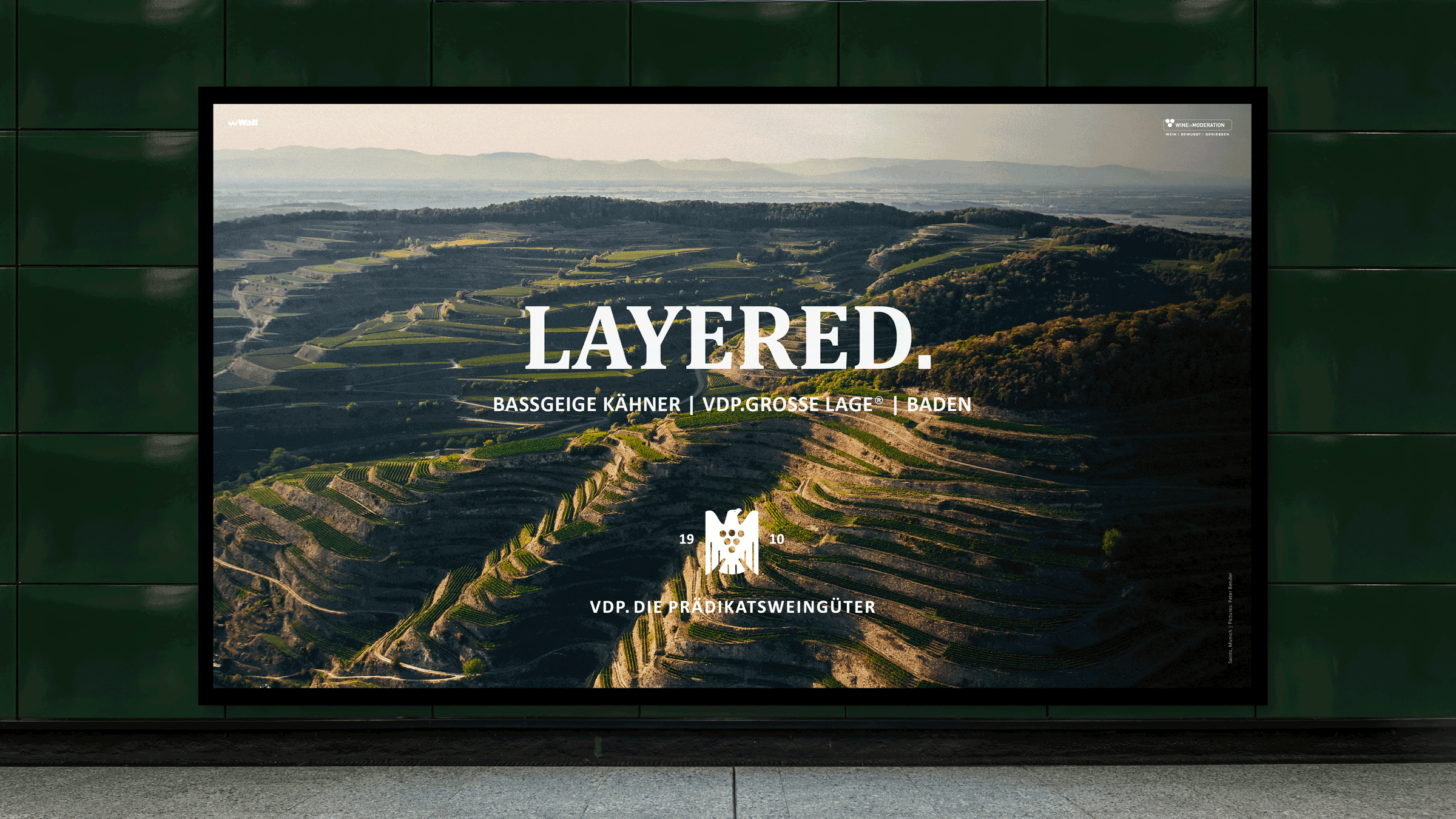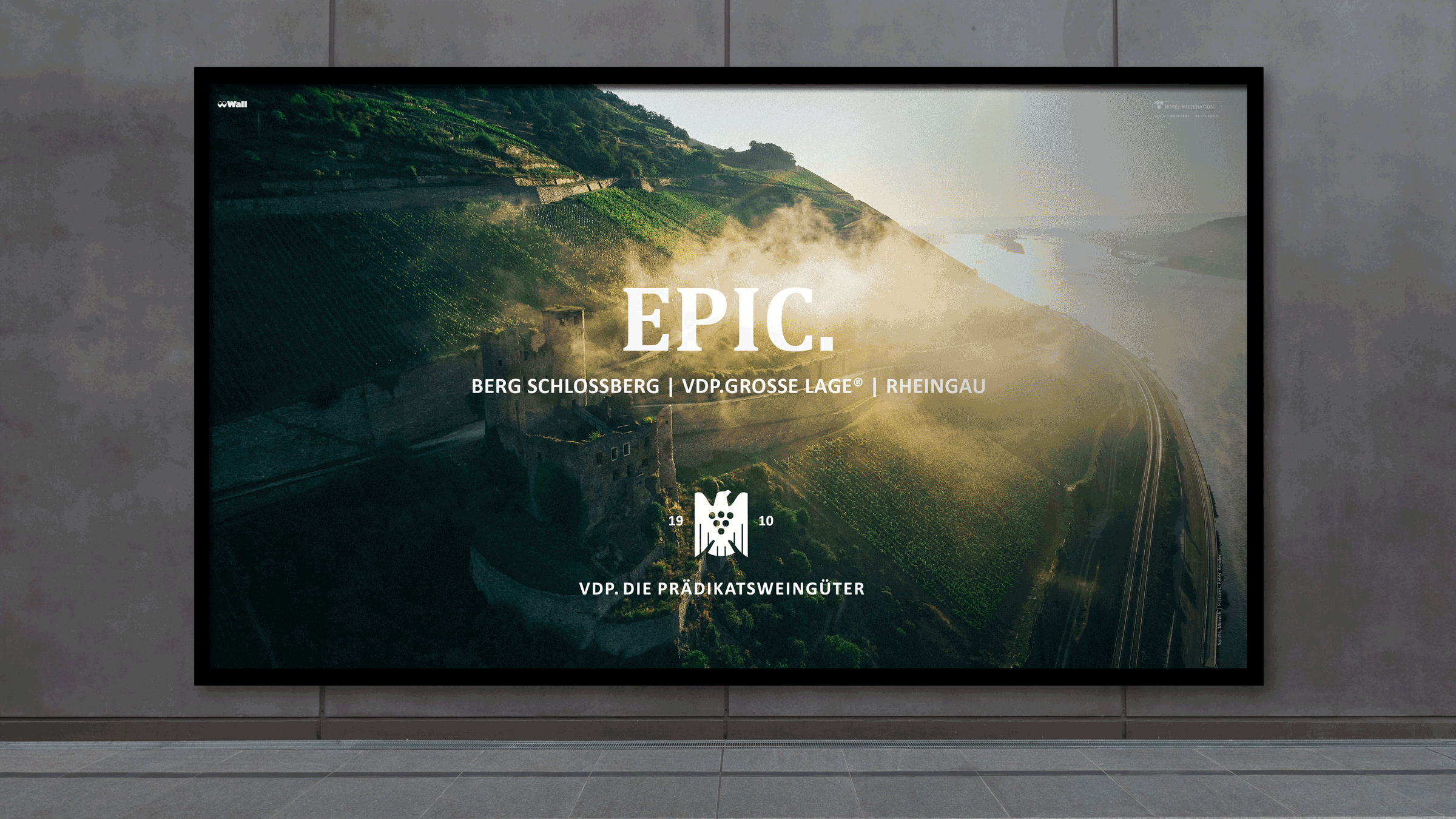VDP makes its case for responsible wine advertising.
The new “Our wines express our sites” campaign from the Verband Deutscher Prädikatsweingüter (VDP) puts the spotlight squarely on the origins of its members’ wines: the vineyards. In the coming weeks, nine different VDP.GROSSE LAGE®-classified sites will grace the streets and subway stations of large German cities including Berlin, Hamburg, and Munich. Normally one must travel to one of Germany’s wine regions like the Mosel, Nahe or Franken to experience the unique terrain in which world-renowned German wines grow.
Each clip overlays an image of a VDP.GROSSE LAGE® site with a positive attribute, establishing an emotional bond between wine and vineyard. For example, BASSGEIGE-KÄHNER, a VDP.GROSSE LAGE® site in Baden, is labeled as “LAYERED” while BERG SCHLOSSBERG in the Rheingau is “EPIC” and ALTE LAY on the Ahr is “DEEP.” The sites were captured strikingly in recent months by photographer Peter Bender.
The campaign also stakes a deliberate marker in the current political debate.
With some legislators currently debating a ban on wine advertising, the new VDP posters show how wine marketing can be conducted responsibly, with respect for nature and culture instead of appealing to recklessness and excess.
“In a time when stricter rules are being discussed for wine advertising, we’re seeking to communicate the importance of wine culture. Our focus is on presenting our vineyards, and the work the wine world does to preserve that cultural landscape and heritage,” says Steffen Christmann, president of the VDP and himself a winegrower.


The new origins campaign will be rolled out on the digital billboards of WallDecaux, and will tie into last year’s campaign “What counts is personality in the glass.” Taken together, the two campaigns make a convincing argument about the challenges and rewards of fine wine production. On the one side are the winegrowers who cultivate the vines and tend to the landscapes, working all year long toward a climatic harvest. On the other side, vintners are inherently at the mercy of the environment in which their grapes grow. The site, soil, and natural conditions such as wind, sun, and rain all shape wine as a cultural product. It takes both personalities and origin to prevent wine from degrading into an uninteresting beverage of indistinguishable taste.
The work and dedication of winegrowers is what ultimately helps preserve the physical and cultural landscape.
They toil tirelessly to maintain the beloved steep slopes of the Mittelrhein and the hillside vineyards of Württemberg. Each of these factors makes clear the difference between the respectful enjoyment of a cultural product such as wine and the indiscriminate consumption of alcohol. And highlights the importance of protecting wine as a cultural asset. But this effort requires many supporters —including in advertising.
An advertising ban, as is currently being discussed in the EU, would put yet another challenge on a wine industry already faced with climate change and the increasing industrialization of wine. The VDP and Wine in Moderation are instead appealing to other players in the wine world to join the initiative with their campaigns and to work together toward conscientious communication of wine as a cultural product and the promotion of responsible enjoyment.

©2022
Photos: ©VDP by Peter Bender
Concept & Design: Saints, Munich







